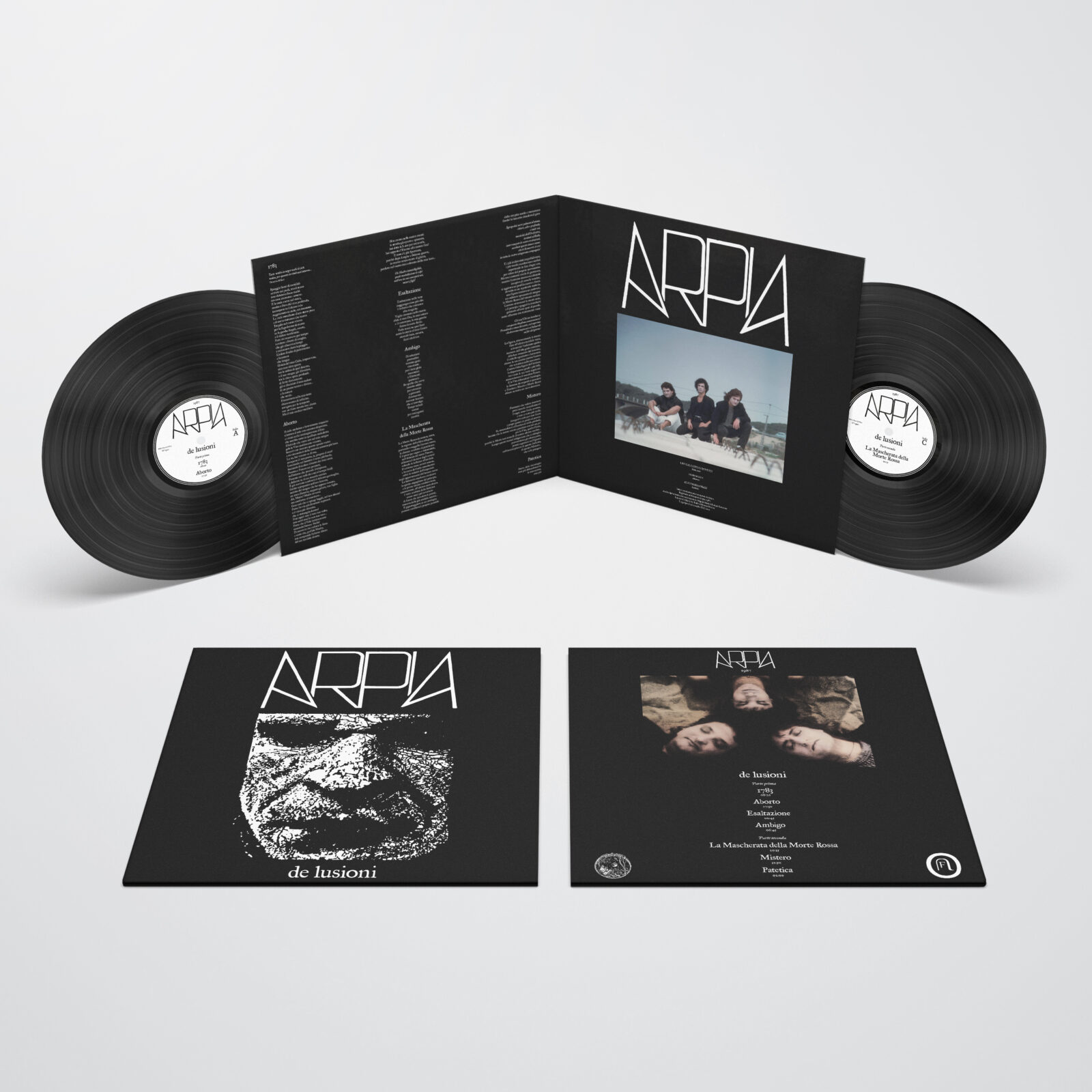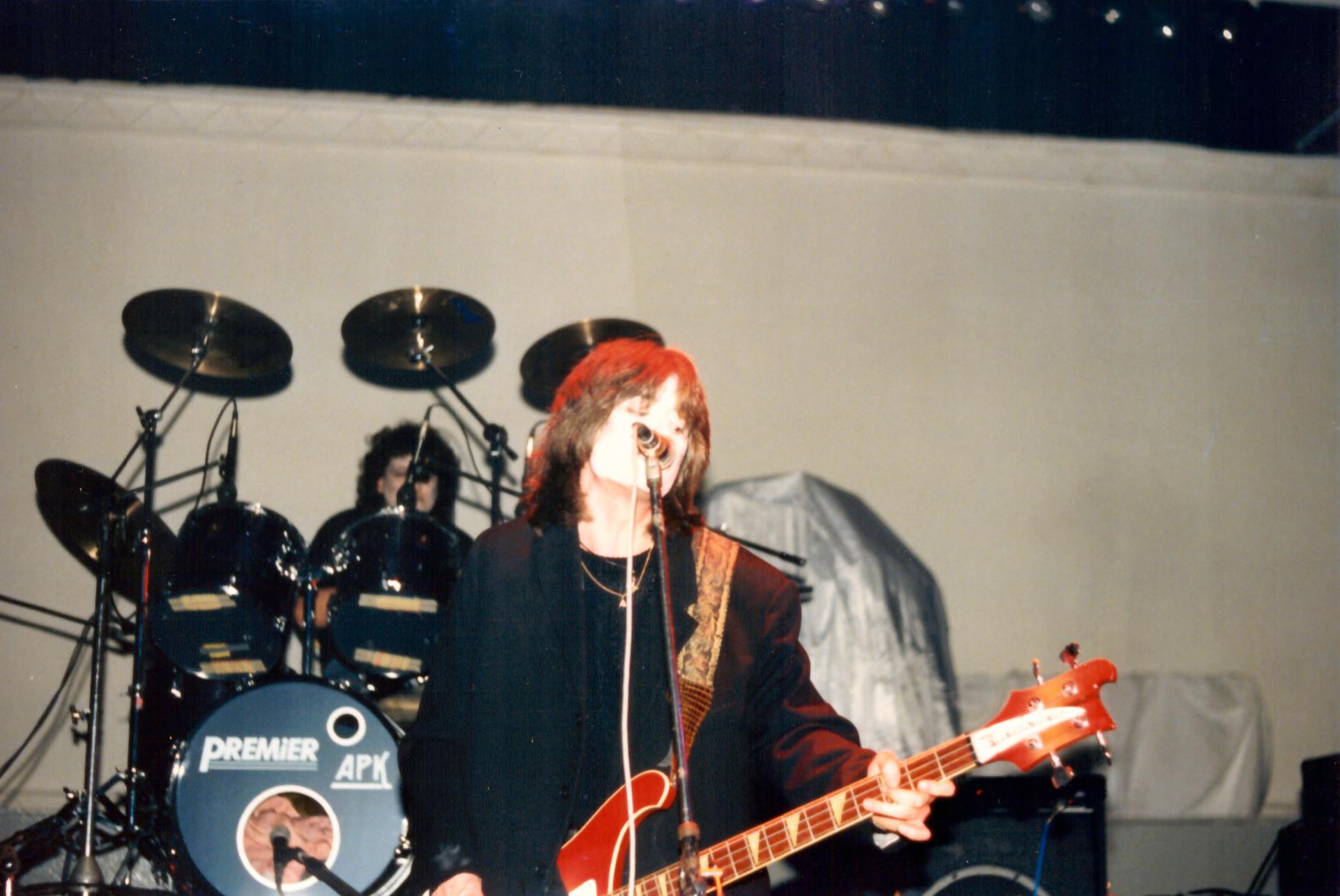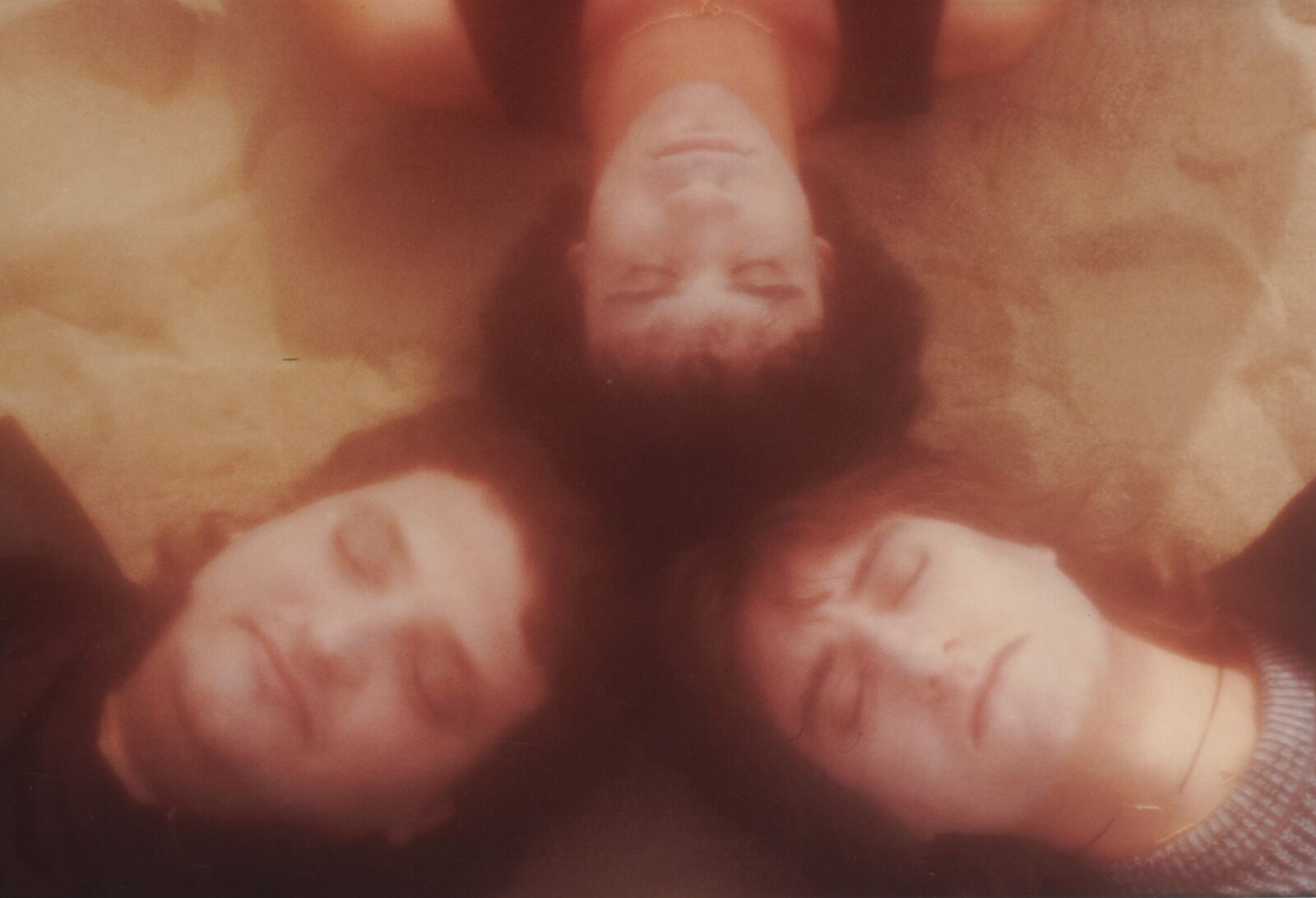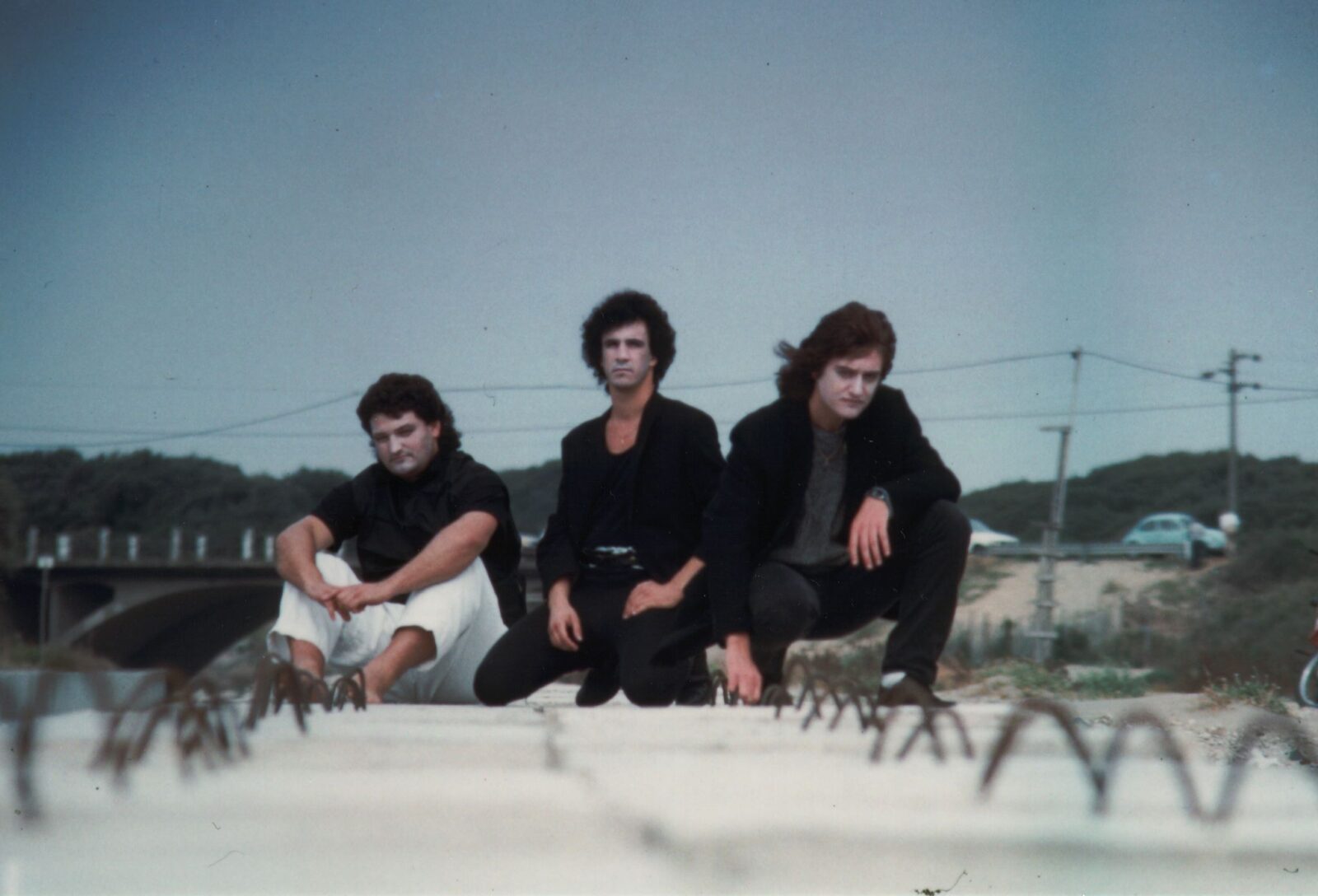Arpia | Interview | Reissued and newly mastered, ‘de lusioni’
Boomland Records and Unseen Forces reissued and newly mastered Arpia’s first demo tape from 1987.
‘de lusioni’ is composed of 7 songs -clocking at 71 minutes- which the band has described at an “experimental demo but of rich forms and ideas later developed in a more organic way”.
Formed in Rome in 1984, this is a newly mastered release of Arpia’s first demo tape from 1987. ‘de lusioni’ is comprised of 7 songs -clocking at 71 minutes- which the band has described at an “experimental demo but of rich forms and ideas later developed in a more organic way.”
The massive reverb on the vocals and guitar on the opening track, ‘1783’, immediately reminds one of Paul Chain. Some songs find the band dropping into the experimental/theatrical realm with vocals that sound intoned and spontaneous. They tend to soar over the music, not quite sung, not quite intoned – but some neither/neither world in between the two. The organic nature of the compositions and performance comes to mind as a way to relate the overall impression of the recording that somehow draws a comparison to Velvet Underground. Yes, that fueled with a heavy dose of Paul Chain / early Death SS with brief hints of 70s Italo Prog would adequately convey the mood of the music herein: hypnotic and rhythmic. There are darker, moodier moments, and some longer expressive passages, allowing one to get lost in the mood created by the eerie, otherworldly guitar work. In the band’s own words:
“‘De lusioni’ is really our origin and the result of a real fervor around the expressive core that we had been defining during those years. Even if this may seem paradoxical, the corpus of songs that compose it still makes it the living heart of our musical experience, so much so that, thirty-five years after its release, this restored reissue forces us today to consider the relevance of a work then held stubbornly out of date. This crossing of time is testimony to a mystery that is renewed and questions us about the place from which our music really comes and what it is really destined for.”
Gatefold Double LP on black vinyl in gatefold sleeve, limited to 300 copies | 6 panels Digipak CD with matte lamination.

Order Europe: link!
Order America: link!
“‘de lusioni’ is the root from which everything we have done and still do started”
What’s the story about the formation of Arpia and how did this first recording take shape from the very first rehearsals?
Arpia was born in February 1984, in the ferment of ideas and research that characterized the Roman rock and underground scene of those years. The group, which immediately formed around the trio guitar, bass, drums, already had common experiences behind them and stood as a point of coagulation of experiences and reflections matured since the early eighties. What prompted us then to develop our own path to metal and progressive dark music was the need felt to be urgent and necessary, to respond to the punk meteor of the late seventies. What we were interested in was to give body and poetic substance to a musical movement of reaction to punk and breaking with the blues roots, maximizing the theatrical dimension of the harmonic structures most dear to us. The seven songs of ‘de lusioni’ were born between 1984 and 1986 and were printed on a four-track cassette in the heart of the ‘Cenacolo Arpia’, a space built and jealously maintained over the years, a real “home” of the group.
“The theatrical aspects of our music are the direct consequence of an approach influenced by late romantic and decadent European poetry”
You had a very interesting concept around the group from the very beginning, very theatrical one could say. Would you like to tell us more about it and what were you trying to achieve? How much of an influence was theatre and narrative for you?
In reality, the theatrical aspects of our music are the direct consequence of an approach influenced by late romantic and decadent European poetry seen through Leopardi’s lesson; if you can let me pass the risky parallel, the theater of our music, especially at the beginning, manifests itself as a sort of “moral operetta” set to music. And here the reference to the songs ‘Abortion’ and ‘The Masquerade of the Red Death’ (taken from the homonymous story by Edgar Allan Poe) are a must.
Speaking of which, as a writer yourself, how do you view the concept and lyrics of ‘de lusioni’ nowadays? Were these your first steps in writing or were both your musical and writing career developed at the same time?
In ‘de lusioni’ writing is at the center, and nothing is left to chance. In fact, Arpia was born around a wide-ranging reflection on philosophical and poetic aspects that materialized in a strongly dramatic and “fascinans” music, in which the authorial control is expressed through the absence of solos and the melodic and speech centrality. For me, writing was a musical exercise right from the start. And this is because I do not conceive of the act of writing detached from its more properly melodic-prosodic value. For me, writing is an act that flows directly from an interior theater whose images follow overbearing rhythmic and harmonic trends.
And which authors or movements influenced the lyrical aspect of Arpia?
The word has always been one of the fulcrums of our musical inspiration. We have always thought that metal and rock in general was not very evolved from this point of view, even if the new wave of British heavy metal had started a change of course in the early eighties on which we naturally entered. Bringing that certain poetic sensitivity that distinguished us to full maturity immediately seemed essential to us. As for the most important influences, in addition to the movements to which I have already referred, I would point out the evident echo present in some passages (Vittorio Alfieri in “1783”, Leopardi in “Aborto” and Poe in “La Mascherata della Morte Rossa”). But alongside the more or less obvious influences there is the start of a more personal reflection that absorbs much of the twentieth-century experience in passages such as “Ambigo” and “Mystery”. After all, the common character that runs through all the compositions is marked by a feeling of strong identity within the bed of the Italian literary tradition of the twentieth century. Hence the choice (then by no means taken for granted and fundamentally against the tide in all local rock and metal) of singing in Italian. A choice we have kept faithful to over the course of these thirty-five years of activity. At least as counter-current as that of not inserting solos.

Do you agree that ‘de lusioni’ is a very important precursor to your latest releases? What is your opinion on this first recording almost 35 years after its conception?
‘de lusioni’ is the root from which everything we have done and still do started. Even today, in the lineup of our concerts, we often open with songs such as ‘Exaltation’, as if the tree of our music still takes life from that root. But ‘de lusioni’ is also the “ideological” basis, if I may say so, of all the reflection from which our musical proposal began. Not surprisingly, before starting to compose those first pieces, we spent months just talking to discuss the main issues of the poetics underlying our music.
Were Death SS & Paul Chain an influence on the early days of Arpia? How about ‘70s Italo Prog such as Procession or Il Balletto Di Bronzo? To my ears Arpia´s sound fits perfectly in-between the two aforementioned.
The names you mention are undoubtedly roots and suggestions that have deeply affected our inspiration. But it must also be said that we filtered them through the musical imagery of the Roman underground movement. In fact, we only got to know their production thoroughly after our first tests. Let’s say that the cultural broth from which our music started was common to many groups who, like us, ventured into that short span of years. That humus was a sum of the fruits of an entire season that spanned the seventies and had been coagulating in a more conscious and urgent way in the early eighties. And we have brought to that collective experience a poetic and visionary sensitivity atypical for the genre.
How was the creative process on ‘de lusioni’? Something I find extremely interesting is how everything was handled internally, self-recording in your home studio wasn’t that common back in 1987, and while the sound is indeed raw and “dirty”, the production sounds very mature and has a truly special vibe, did you have a technical background on sound engineering and what led you to manage all aspects of recording?
Recording in our studio, the “Cenacolo Arpia”, was fundamental for our growth and our awareness. And it has determined a freedom of intentions and achievements that would not have been possible following the more canonical paths followed by other groups of our time. Previously we had built up a wealth of knowledge and sensitivity that allowed us to deal with recording and production despite the few means available. That atmosphere that is perceived between the furrows of this work is closely linked to the climate that has always reigned in our “cenacolo”, a place that was and is, for us, a free space for experimentation and reflection.

Boomland Records and Unseen Forces are reissuing ‘de lusioni’ on vinyl and a deluxe Digipak CD. Are you enthusiastic about it?
The reissue of ‘de lusioni’ by Boomland Records and Unseen Forces is a very important occasion for Arpia that fills us with enthusiasm. A “big party” to mention one of our latest songs which, I hope, we will be able to record and publish in the coming months. Even the new compositions, in fact, owe a lot to ‘de lusioni’, as we owe a lot to the sensitivity and attention with which Boomland Records and Unseen Forces oversaw the restoration and publication on vinyl and CD of our debut work.
Klemen Breznikar
Arpia Official Website / Facebook
Boomland Records Official Website / Facebook / Instagram / Twitter / Bandcamp / YouTube
Unseen Forces Facebook





Thanks for the tip for this interesting and unknown band !